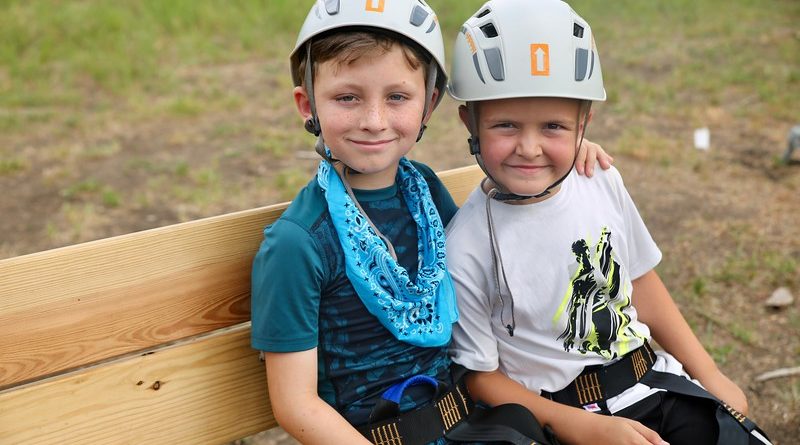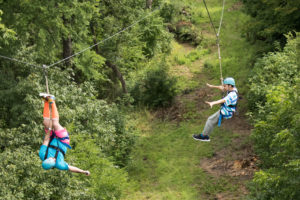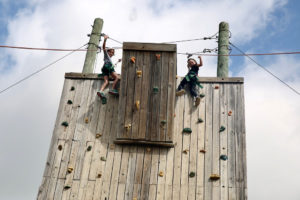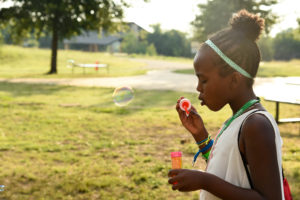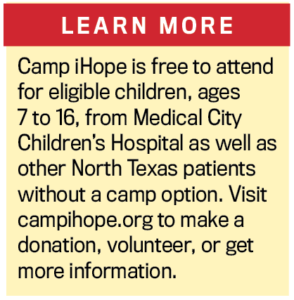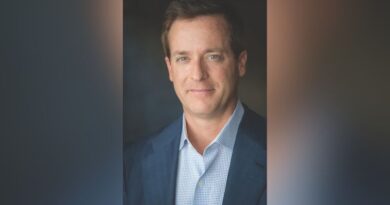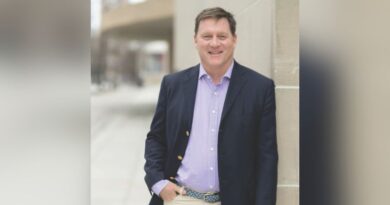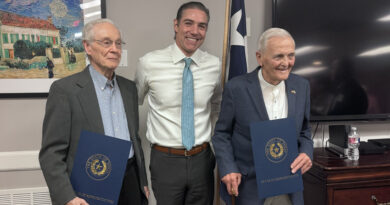Camp iHope Offers Freedom, Family, Fun
Each June, campers skim the trees in Anna on a zip line, canoe the lake water, climb the rock wall, and forget about cancer for a week.
(ABOVE: Children with cancer and their siblings enjoy a variety of outdoor activities. Courtesy Camp iHope Foundation)
Through a partnership with the YMCA, Camp iHope takes over the Collin County Adventure Camp where children touched by cancer – patients and their siblings – can share memory-making days of miniature golf, arts and crafts, dancing, and other fun.
Launched with a 2010 grant from Hyundai Hope on Wheels and supported by other donations, the free summer program has operated since 2011, providing a much better option for Dallas area families than traveling to San Antonio, camp co-director Deb Echtenkamp said.
Echtenkamp, an advanced practice registered nurse and manager of the Pediatric Oncology Program for Medical City Children’s Hospital, described the five-hour bus trip required in the past as a feat to pull off.
Many children missed out because they were undergoing radiation treatment or their white blood cell counts were low, she said. Increased risk of infection and the long distance from their parents made the trip impossible for some.
But having a camp nearby allows more staff from Medical City Children’s Hospital to attend and monitor the children’s health, Echtenkamp said.
“You don’t have to remind a kid that they are sick.” -Lin Ma
Some patients receive radiation treatment in the morning and are back to camp in the afternoon, she said. “They get to participate, so being close to the facility just makes things a lot easier.”
Echtenkamp sees the fun as an essential part of therapy.
Being with others that are going through the same thing or who have reached milestones in their treatment helps build resiliency and hope, she said. Even peer pressure plays a part in getting younger children to take their medicine or eat when they see older ones doing so.
iHope includes siblings because “cancer affects the whole family,” Echtenkamp said.
Often, because the focus is on the sick child, siblings feel unimportant or experience PTSD, but with a support network, they learn to process their feelings and even develop empathy, she explained.
Lin Ma, of University Park, said her children, Jeff and Joanna, benefited from the experiences.
Having a blend of healthy and sick children helped her daughter, Joanna, feel normal while enjoying activities like rock climbing, the zip line, and dancing with her brother.
“You don’t have to remind a kid that they are sick,” Ma said.
iHope also helped her son create lifelong memories with his sister.
Jeff, a 13-year-old at Highland Park Middle School, continues to attend on his own and hopes to return as a counselor when he reaches 17 and is too old to participate as a camper.
Ma explained that when her son returns to camp each summer, he feels as if his late sister is there with him in spirit, and he can bond with her again and keep her memory alive.

